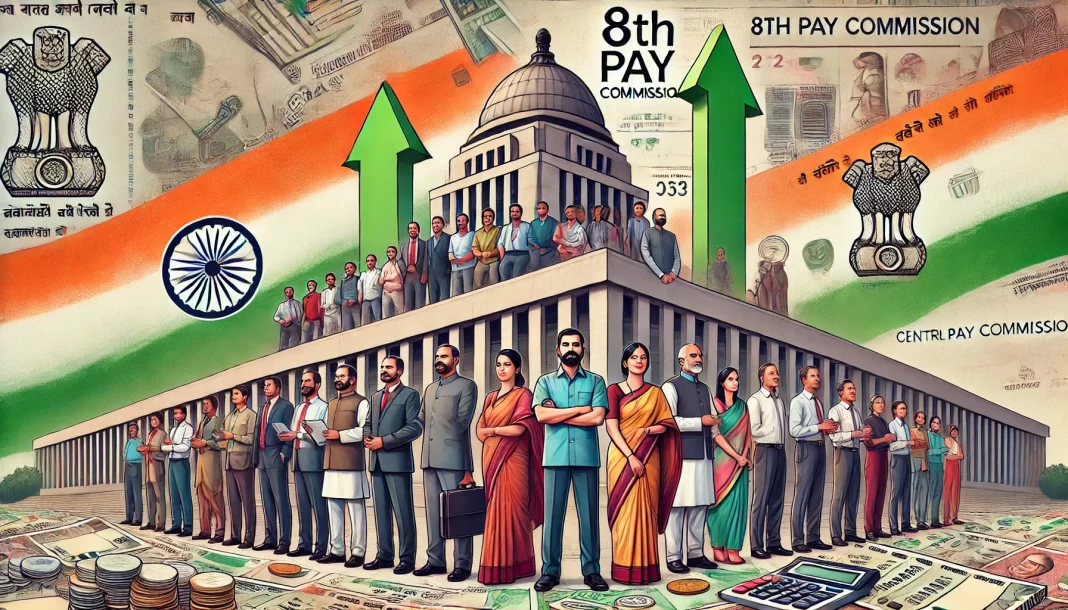The 8th Pay Commission is a topic of great interest for over one crore central government employees and pensioners across India. The commission, once implemented, aims to revise salaries, allowances, and pension schemes, providing a much-needed boost to government workers’ financial stability. But when will the 8th Pay Commission come into effect? What can employees expect in terms of salary hikes and benefits? Let’s dive into everything you need to know about the 8th Pay Commission.
What Is the 8th Pay Commission?
The 8th Pay Commission is a body established by the Government of India to review and recommend changes to the salary structure, allowances, and pension schemes of central government employees. Typically, these commissions are formed once every 10 years, with the last one being the 7th Pay Commission, which came into effect in 2016. The 8th Pay Commission is expected to bring several important changes, especially as the 7th Pay Commission is nearing the end of its implementation period, set to conclude by January 2026.
Why Is the 8th Pay Commission Important?
Central government employees have long been advocating for the formation of the 8th Pay Commission, and their anticipation is linked to rising living costs, inflation, and the increasing demands of the workforce. The current pay structure has not kept up with the economic challenges employees face, making the need for a new commission even more urgent. Moreover, the implementation of the 8th Pay Commission is expected to have a broad economic impact, benefiting not just government employees, but also boosting the overall economy through increased consumer spending.
Key Changes Expected with the 8th Pay Commission
1. Increased Salaries and Allowances
One of the most anticipated changes is a significant increase in the basic salary of central government employees. According to reports, salaries could see an increase of around 20% to 35%. This would provide a considerable relief to employees who have been facing high inflation and the rising cost of living. Along with salary hikes, allowances such as House Rent Allowance (HRA), Dearness Allowance (DA), and Transport Allowance (TA) may also be revised.
For example, under the 7th Pay Commission, the starting basic pay for a Level 1 employee is ₹18,000. Under the 8th Pay Commission, this could be increased to anywhere between ₹22,000 and ₹24,000.
Similarly, the HRA and DA are likely to be adjusted to reflect the current inflation rates, providing employees with more take-home pay.
2. Revised Pension Plans
The 8th Pay Commission is expected to benefit not just active employees but also retirees. Pension schemes will likely see a 20% to 30% increase, providing a better financial cushion for those in retirement. This change would significantly improve the quality of life for retired central government employees and ensure they are not financially burdened.
3. Fitment Factor
A fitment factor determines how the basic salary of government employees is calculated in relation to the pay matrix. The fitment factor under the 7th Pay Commission was 2.57, and the 8th Pay Commission is expected to propose an increase to 2.86. This would result in higher pay for all employees across the board.
4. Impact on the Economy
Increased disposable income for central government employees could have a ripple effect on the economy. With more money in their pockets, employees are likely to spend more, contributing to a boost in consumer demand. This could provide a much-needed push to various sectors such as retail, housing, and services.
5. Improved Retirement Security
The 8th Pay Commission might also include better retirement benefits for employees. With an expected rise in pension, employees will enjoy greater financial security post-retirement, ensuring they live comfortably even after their working years.
When Will the 8th Pay Commission Be Implemented?
As of now, no official announcement has been made regarding the exact formation date of the 8th Pay Commission. However, based on previous patterns, the commission is likely to be set up by the end of 2024 or early 2025. Once it is formed, its recommendations will be implemented by 2026.
The government is expected to consider factors such as the general economic condition of the country, inflation rates, and the growing demands of government employees before making a final decision.
Conclusion: What Should Employees Expect?
While the 8th Pay Commission is still in the pipeline, the changes it is expected to bring are promising. Central government employees can look forward to significant salary hikes, enhanced allowances, better pension plans, and improved retirement benefits. These revisions are expected to help employees cope with rising inflation and improve their financial wellbeing. Moreover, the commission could have a positive impact on the broader economy, driving consumer demand and contributing to economic growth.
With all eyes on the formation of the 8th Pay Commission, it’s safe to say that government employees have plenty to look forward to in the coming years.



